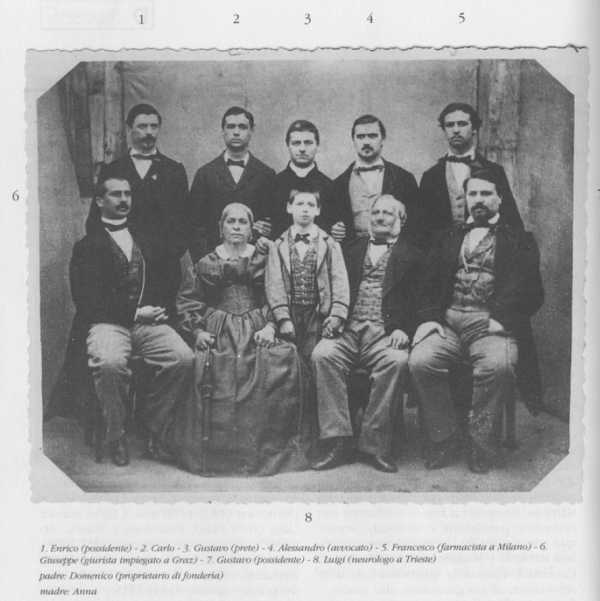Privacy rules, AI policy and anti money laundering information
We take YOUR rights seriously, since .. 1870!
 1. Site usage disclosures
1. Site usage disclosures
CanestriniLex will not collect any personally identifiable information about you when you visit our website or use our services unless you choose (by mail or express consent) to provide that information to us.
This website utilizes Google Analytics (see Google Analytics Privacy statement): you should also be aware that data may be automatically collected through the standard operation of our internet servers and through the use of cookies.
Cookies are small text files a Website can use to recognize repeat users, facilitate the user's ongoing access to and use of the site and allow a site to track usage behavior and compile aggregate data that will allow content improvements and targeted advertising.
Cookies are not programs that can access a system and damage files. If you do not want information collected through the use of cookies, there is a simple procedure in most browsers that allows a customer to cancel stored cookies, and deny or accept the cookie feature.
Please note that Google Analytics Cookies have been anonymized in order to avoid the risk of individuation of the client through the IP number; thus the cookies cannot be used for profiling under the terms of Section 13(3) as applied jointly with Sections 122(1) and 154(1)c) of italian data protection Code (legislative decree No. 196 of 30 June 2003: please refer to the decision of Simplified Arrangements to Provide Information and Obtain Consent Regarding Cookies.
2. Client- attorney relationship and data protection rules
Once the client-attorney relationship is established, the holder of the data processing to the end and for the purposes pursuant to art. 13, Legislative Decree 196/2003 (hereinafter even referred as "T.U."), is Nicola Canestrini, attorney under italian law.
Data handling performed by the Law Firm Studio legale Canestrini will be solely directed toward the exact and full performance of the assigned professional duty, with regard both to judicial and extrajudicial proceedings and towards the fulfilment of the obligations for clients' identification and data storage pursuant to the anti-money laundering regulation for lawyers.
Data handling might consist of all the operations or the whole of operations indicated in art. 4, paragraph 1, subparagraph a) of T.U.: collection, entry, filing, storage, reference, processing, modification, screening, retrieval, comparison, use, interconnection, control, sharing, cancellation and destruction of data. Data handling operations might be performed by means of paper-based materials, as well as by means of computerized and/or electronic or anyhow automated instruments.
Data handling will be performed by the Holder and/or by the Firm associates and employees in charge of said activities and also by the external consultants of the Firm appointed for data handling activities, in case of need and where necessary for the performance of the assigned duty.
The assignment of personal, sensitive and judicial data is strictly necessary in order to guarantee the full and exact fulfilment of the assigned professional duty and/or to perform the obligations thereto related.
The possible refusal of the subject concerned for the assignment of personal data will prevent the Firm from the performance of the activities required in order to guarantee the full and exact fulfilment of the assigned duty.
The assigned personal data might be disclosed to the subjects in charge of data handling and might be communicated to external collaborators, subjects operating in the judicial field, counterparts and defenders of same, arbitrators' panels and, in general, to all those subjects which might need such disclosure in order to guarantee the full and exact fulfilment of the assigned duty.
The assigned personal data will not be subject to diffusion. During the performance of the assigned professional duty, the aforesaid personal data might be transferred to Countries of the European Union and to third Countries thereto related.
Art. 7 of T.U. confers specific rights on the subject concerned, including the right to obtain from the holder confirmation of the existence or non-existence of own personal data and their availability in an intelligible manner; the subject concerned is entitled to the right of knowledge with regard to the source of data, to the purposes and the procedures of data handling, to the rules enforced for such handling, to the elements needed for the identification of the holder and of the subjects to which such data might be disclosed; the subject concerned is furthermore entitled to the right of obtaining the update, the correction and the integration of data, their cancellation, their processing for anonymity or the control of those data handled in violation of the law; on legitimate grounds, the holder is entitled to the right to oppose data handling, exception made for the mandatory handling set forth by the law (e.g. clients' identification and data storage pursuant to the anti-money laundering regulation for lawyers.
3. Generative Artificial Intelligence and Our Activities

(founder of the firm, Alessandro Canestrini, the second standing from the right)
The use of generative artificial intelligences represents both a challenge and an opportunity for the legal sector. CanestriniLex is committed to maintaining high standards of quality, ethics, and transparency, integrating new technologies while respecting the values that have guided the firm since 1870. Continuous training and attention to professional ethics are indispensable pillars for addressing this technological transition responsibly and competently.
With the advent of generative artificial intelligences (such as Chat-GPT and others), the legal sector must also address the issue of the responsible and effective use of these technological tools, ensuring compliance with the highest professional and ethical standards, including data confidentiality (which is guaranteed in pro versions).
Starting in 2024, CanestriniLex adopted a IA policy dedicated to the use of generative artificial intelligences. This policy, inspired by the founding values of the law firm, active since 1870, is continuously updated to ensure ethical and transparent use of technology.
The fundamental principles are as follows:
Legal Content Production: No legal opinion, document, contract, or procedural act is ever generated directly by an artificial intelligence. Generative artificial intelligences are never used to create legal content from scratch. Any document involving the use of AI is always reviewed by a qualified professional, ensuring adherence to ethical and regulatory standards.
Support for Workflow Processes: Generative AIs may be used as support for: Summarizing complex documents, which are always verified by a lawyer. Creating diagrams, conceptual maps, or brainstorming for legal strategy development. Reviewing documents, briefs and acts. Proposing titles or drafts for informative articles published on the firm's website or social channels. Translations.
Promotion of AI Awareness: We consider it essential to spread a culture that recognizes the potential and limitations of artificial intelligence. We organize seminars and training courses for lawyers and collaborators to promote ethical and informed use of generative AIs and enhance the skills needed to address the legal challenges posed by technological evolution.
***
Anti-money laundering information
Our law firm does obviously complain to the italian anti money laundering and terrorist financing provisions, governed, at the level of primary legislation, by Legislative Decrees 231/2007 and 109/2007 (based on the Directive 2005/60/EC of the European Parliament and the Councill, the Third Anti-Money-Laundering Directive, , implemented by Commission Directive 2006/70/EC): the scope of anti-money-laundering legislation has been progressively extended beyond banks and financial intermediaries to other persons engaged in activities considered to be particularly exposed to the risk of money laundering (professionals such as lawyers, notaries and accountants and some categories of non-financial business such as antique dealers, casinos and real-estate agents).
The system for the prevention of money laundering is based on the following obligations, in order to fulfill the adequate organizational and procedural arrangements and internal control measures:
- customer due diligence according to a risk-based approach;
- record-keeping of the information acquired in the performance of customer due diligence;
- reporting of suspicious transaction.
An additional anti money-laundering tool, characteristic of Italy's legal system, consists of the provisions that limit the use of cash and bearer instruments in transactions in general.
Please red more on anti-money laundering regulation for lawyers.
Client attorney privilege in Italy
Please check our article "Client attorney privilege in Italy".